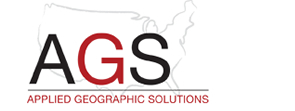Growing up, there was a series of books that was very popular among my classmates. It was a variety of different stories, but they all had the same theme—choose your own adventure. You would read a section, and then at the end it would instruct you to turn to page 27 if the hero defeated the dragon, or page 65 if the hero needs reinforcements. You have to determine the outcome of the book. With demographics, there isn’t much wiggle room on the outcome, numbers are numbers. But with our newly rereleased database, Quality of Life, there are some inherently subjective ways to look at the data.
The Quality of Life Index (QoLI) database is a Block Group and higher level database that combines many different sources to show where the best places are to live and do business. The database consists of a main index derived from five sub-indexes: economic, health, community, leisure, and physical environment. These sub-indexes are based upon specific variables within each category. We have created the database the way that we think the categories should be weighted, but someone else might feel differently. So, we’ve decided to offer it two ways: take the data as it is weighted or choose your own weights.
For our scoring, we have the five categories broken down into the following percentages:
| Categories | Percentages |
| Economic Subindex Score | 30% |
| Health Subindex Score | 15% |
| Community Subindex Score | 21% |
| Leisure Subindex Score | 21% |
| Physical Environment Subindex Score | 13% |
| Total | 100% |
But what we think is important in determining the quality of life in any location might not be what you think it should be. Maybe what is really important to you, or your clients, is climate. You might adjust the percentages so that the physical environment score is increased, and community is decreased. Playing with these scores will result in customized scores that end users will find helpful for a variety of applications.
We think that this could have major benefits for commercial real estate when determining site location. Physical environment might be more important for retail companies that focus on outdoor activities and fitness. In times of economic downturn, the economic subindex score might be more important to companies as well to determine if an area is financially stable enough to support their store or restaurant.
The Quality of Life database has many applications, but the flexibility of the database provides users with ultimate control and creates endless use cases and applications.


Recent Comments